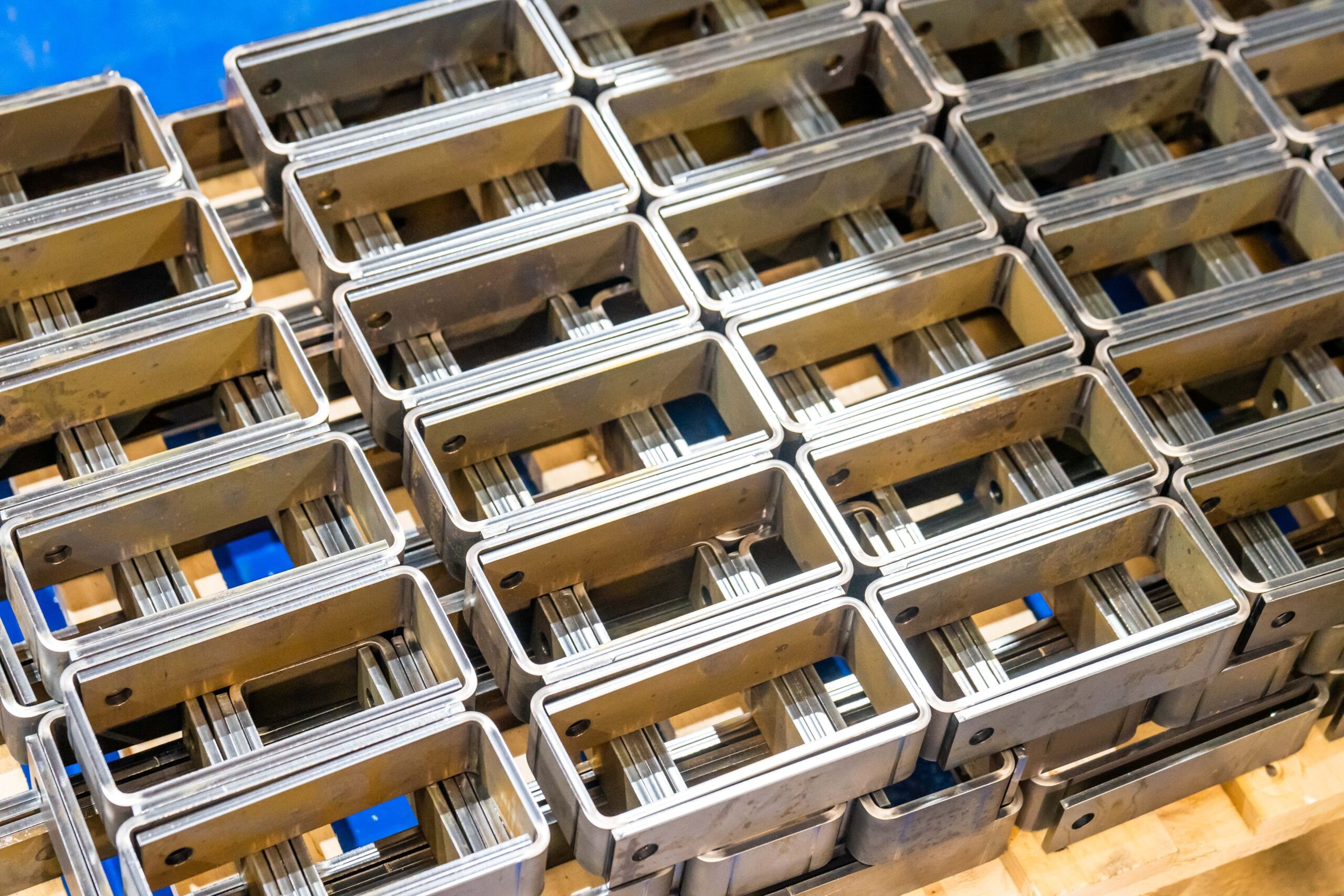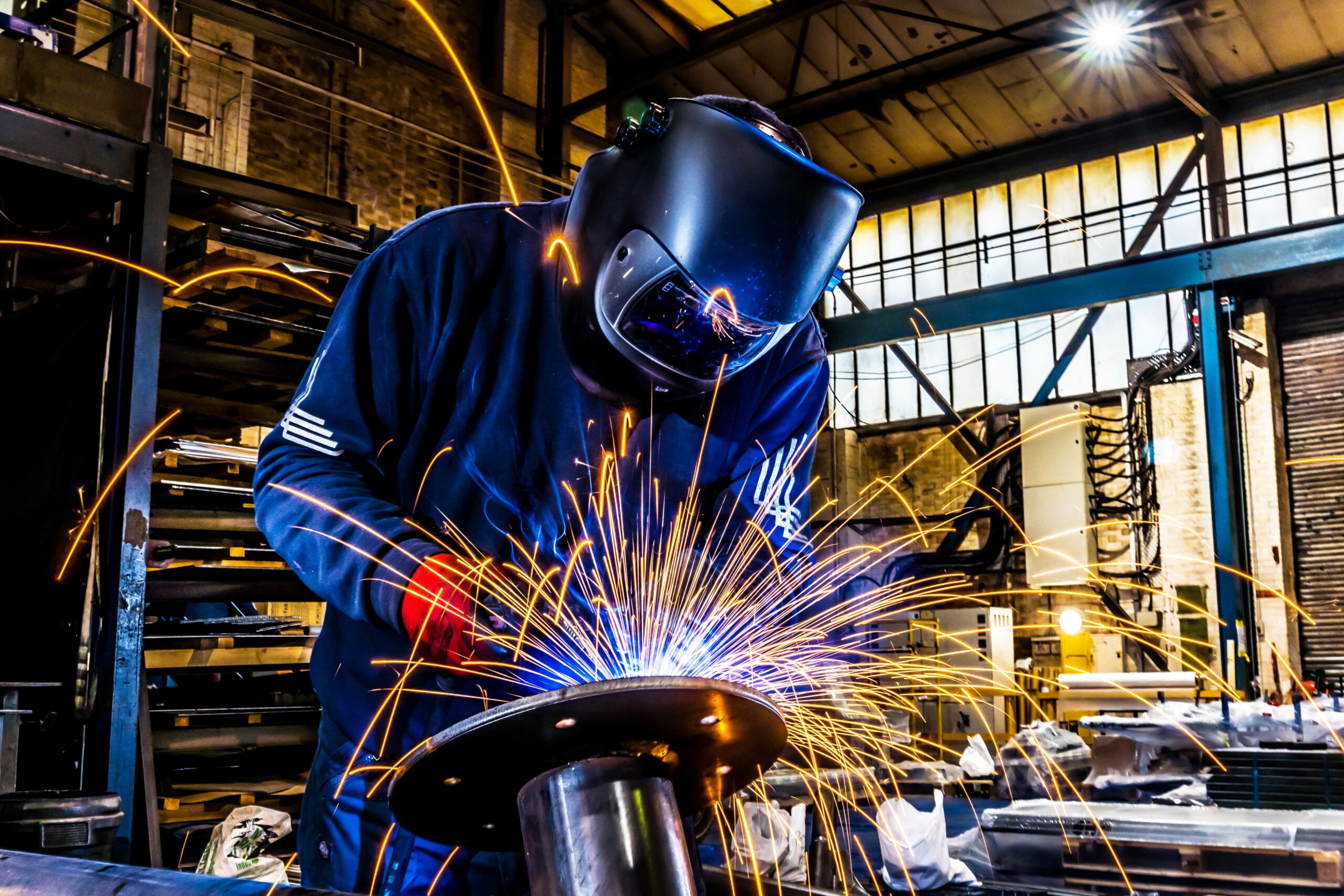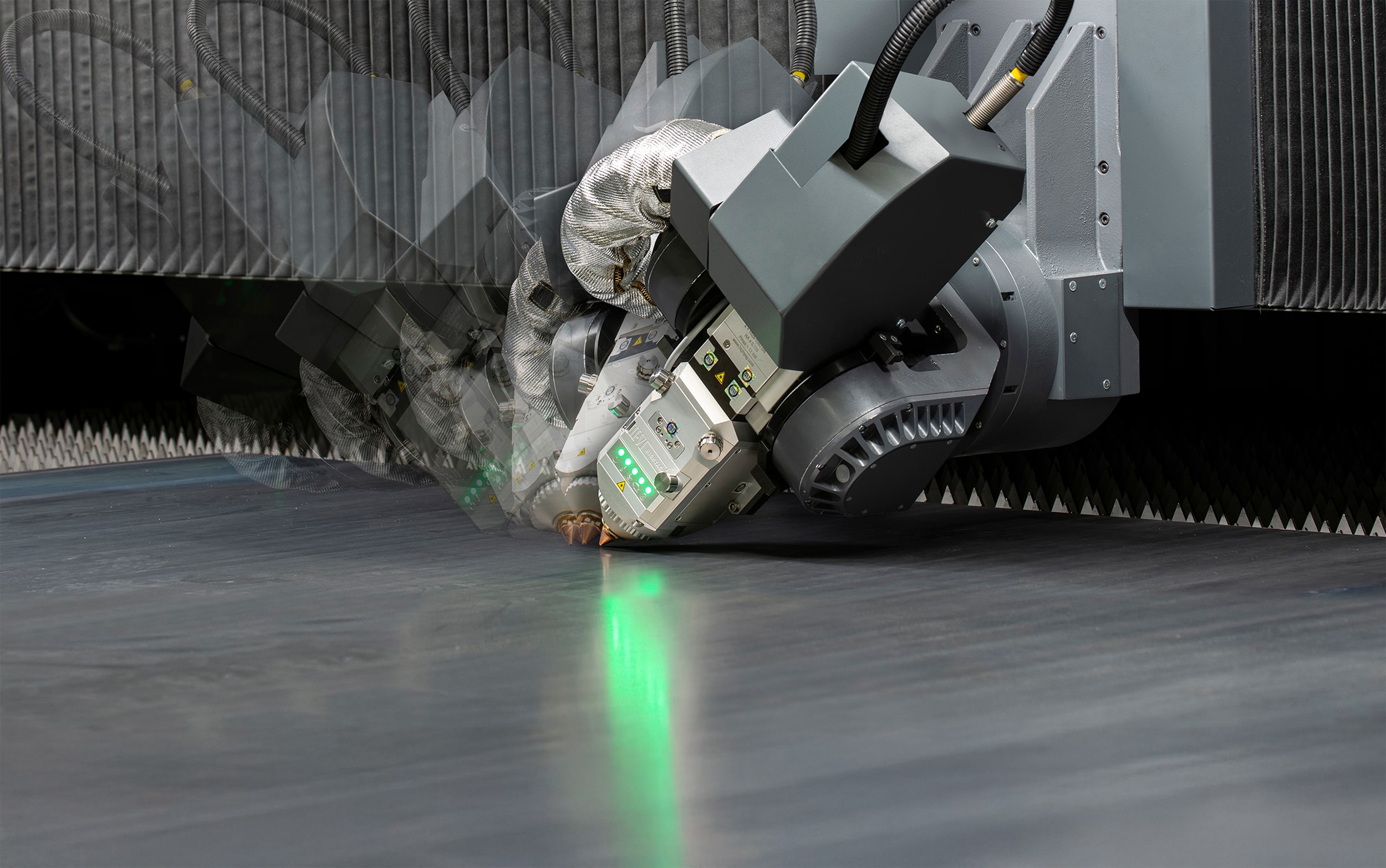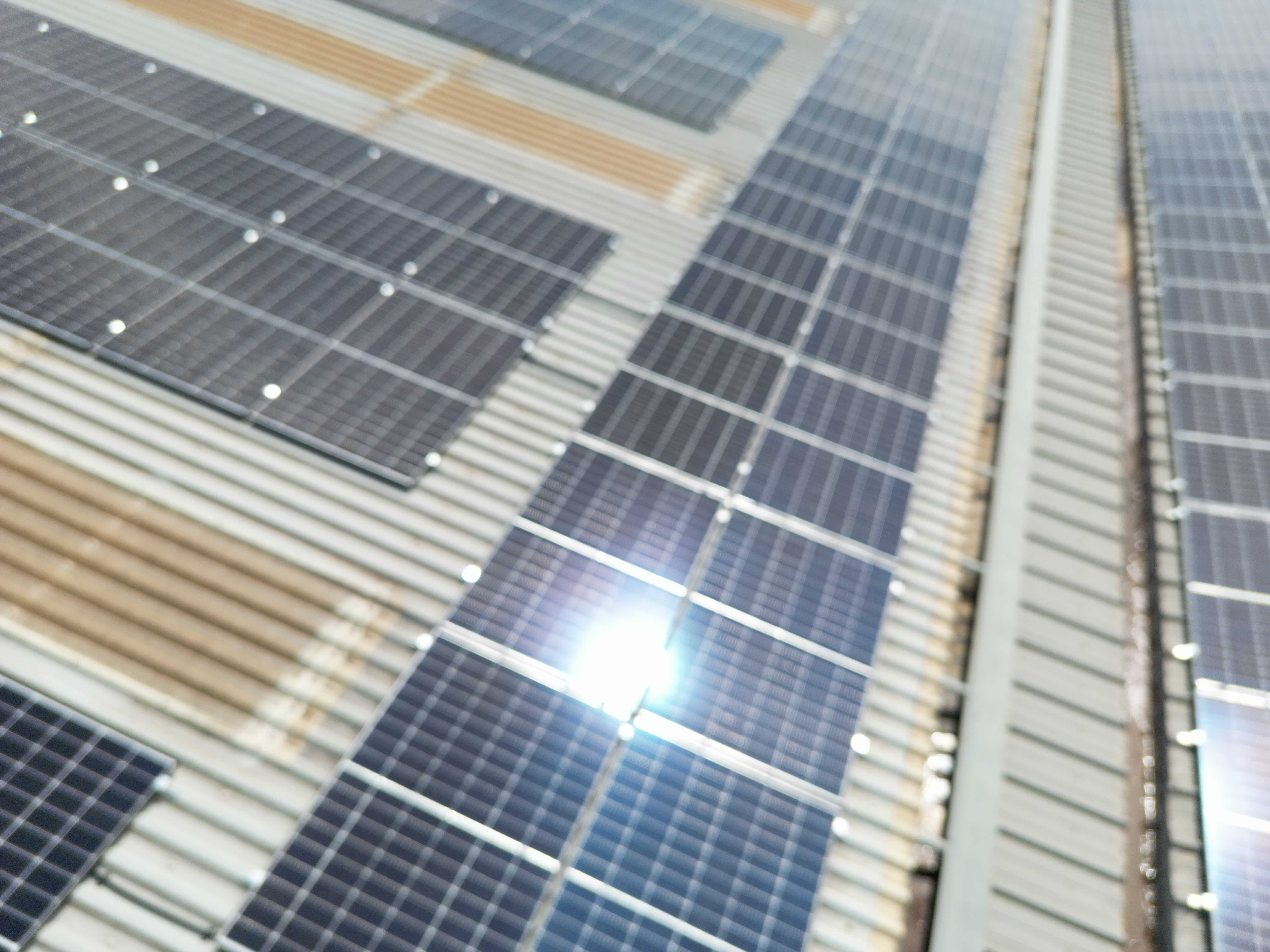Back in November 2012 Charles Day invested £1.5 million in a 6kw BySpeed Pro, a 3kw BySprint Fiber and a ByCell Cross auto handling system including sheet storage towers to feed both machines. As with any large scale investment there were initial teething problems, but the installation of the fibre laser has been an outstanding success. Through extensive testing and customer experience Charles Day (Steels) has found the fibre laser excels when cutting material 5mm and thinner. The results are it is cheaper, faster and the quality is indistinguishable from CO2 lasers when cutting thin material.
Cost Reductions
The BySprint Fiber is a cheaper machine to run compared to the other laser machines Charles Day (Steels) operates. Not only does the 3 kw fibre machine use less electricity to run than the other 3.5 kW – 6 kW CO2 machines it also doesn’t require laser gases to run.

The costs of running the fibre have been helped by the automated handling system. For large jobs the machine can cut sheet after sheet unmanned overnight in what we call “lights-out operation“. The main time sink of the fibre machine is loading of sheet and unloading of cut profiles so having this automated is reducing costs for larger jobs. Samuel Staniforth’s is a knife maker which was established in 1864. For a number of years they have had knife blanks laser cut by Charles Day Steels, which their craftsmen then turn into high quality professional knives. Chris Hopkinson, owner and director at Samuel Staniforth’s is pleased with the new fibre laser machine:
“We obtained a project that required a large amount of knife blanks cut around the 2mm thickness. It was during the time Charles Day (Steels) initially installed their fibre laser machine. When we were quoted we received prices on both the traditional CO2 laser and on the new fibre laser. The fibre prices that came back were 30% to 40% cheaper than the CO2 prices. Even though knife blanks that are cut on the fibre laser are cheaper, there has been no discernible reduction in quality of the received parts.”
Faster
Although the fibre is very fast, its overall speed is often slowed by complex shapes or many pierces. Even with this fact, it still performs better on thinner material over a traditional CO2 laser. Charles Day is getting a lot of use out of the new machine; production manager Dave Sears said:
“The BySprint Fiber cuts exceptionally quick when cutting thinner materials. Combined with the tower system and its 24/7 operation it is getting through a lot of sheet.”
Quality
In Charles Day’s tests, the quality of material 4mm and below cut on the BySprint Fiber has been indistinguishable from their CO2 laser machines. Over 4mm for most materials better quality has been achieved on traditional CO2 lasers or on waterjet cutting depending on customer requirements. Sutcliffe Play is an award winning, employee-owned manufacturer that designs & makes children’s outdoor playground equipment for a variety of buyers worldwide. They initially contacted Charles Day Steels after their existing supplier shutdown. Through recommendations, pricing and capability Sutcliffe Play chose Charles Day to fulfil their laser cutting requirements. Melanie Everit-Hughes, Logistics Supervisor at Sutcliffe Play said:
“Ever since we started using Charles Day we’ve been very happy with the quality coming from them. Our products vary in thickness but the thinner material that is cut on the fibre laser is a high standard. There have been no quality issues with the items we have received with no burrs on the edges of the cut and items easily within set tolerances.”
Yellow Metals
One of the goals of the investment in the BySprint Fiber was to be able to cut yellow metals such as copper and brass. Charles Day (Steels) has traditionally cut these highly reflective & thermally conductive metals on their waterjet bed. Charles Day (Steels) has gained a lot of new work cutting yellow materials because it is now more economical.
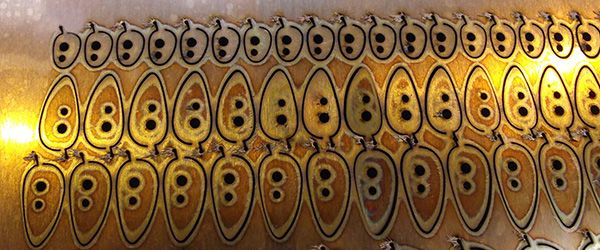
The limits of the machine have been fully pushed by customer requirements including cutting of 1mm copper with parts as small as 4mm by 6mm. Oliver Horsman of Olice Productions had this to say:
“Back in October, Charles Day (Steels) fibre laser cut some 1mm thick copper for a project of mine. I was warned that the pieces were at the very limit of what was possible as they were very small and very thin. I expected the worst but I was surprised when I received my order because the pieces came out great. I don’t have much requirements for laser cutting but the fibre laser cutting of the copper helped me fulfil my design at a reasonable price.”
Summary
Phil Wooffinden, managing director of Charles Day (Steels) said of the fibre laser machine
“The initial plan for the fibre laser machine was to help with our big running jobs and to aid in the profile cutting of yellow metals such as brass and copper. The fibre laser has surpassed our expectations, reducing the time and cost needed to cut materials on the thinner end of the spectrum. The fibre laser has fitted in well with our existing set up of 5 CO2 laser machines for thicker material and waterjet cutting machines for thicker yellow metal profile cutting.”
The fibre laser has been a perfect complement to Charles Days existing profile cutting capabilities, providing a fast and cheap method to cut vast volumes of thin material. The fibre laser cuts faster at thicknesses 4mm and thinner but the advantages decrease when cutting more complex shapes or profiles will many pierces.
Customers looking to cut thin material into simple shapes such as cabinets or control panels should consider using fibre laser over traditional CO2 lasers. Due to our diverse range of cutting machines and methods, Charles Day are able to suggest the best method to suit you needs. Please contact our Sales Team with your requirements and we’ll be happy to help.
